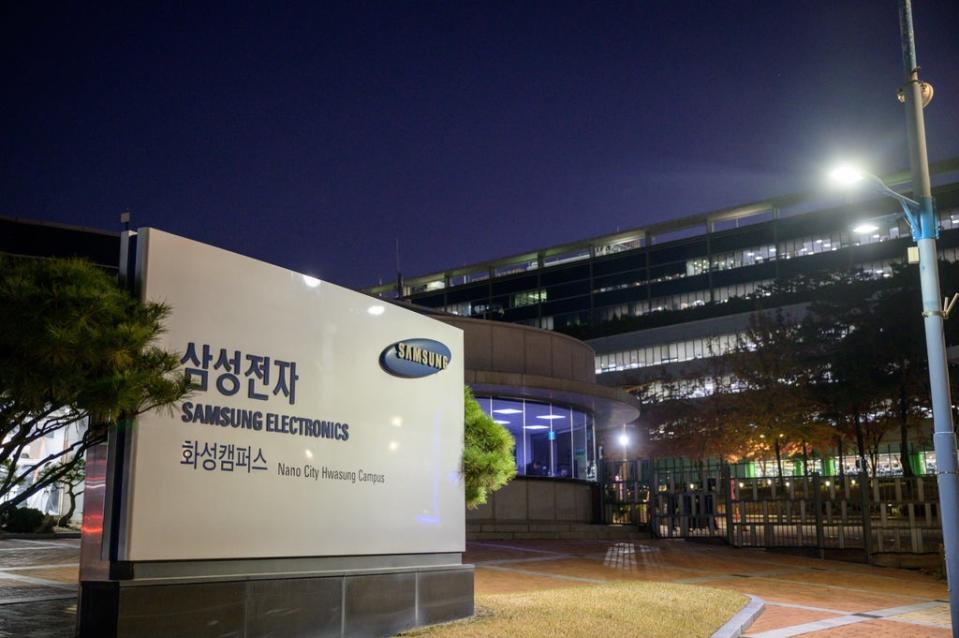Samsung to build $17bn chip factory in Texas’s biggest ever foreign investment

Samsung is planning to build a $17bn (£12.7bn) chip factory outside Austin, Texas amid a global shortage of semiconductors used in automobiles, laptops, phones, and other electronic devices.
“This is the largest foreign direct investment in the state of Texas, ever,” said Texas governor Greg Abbott, who announced the project on Tuesday, as well as Samsung’s biggest single investment in a US project.
The South Korean electronics giant said it would start building the factory next year and plans to begin operations in the second half of 2024.
It chose the site in Taylor, Texas after considering locations in Arizona and New York. Samsung vice chairman Kinam Kim said the site proved more favourable due to a number of factors, including government incentives, the “readiness and stability” of local infrastructure and its proximity to the company’s only other plant in the US in Austin.
The new factory will manufacture high-tech chips used for 5G mobile communications, advanced computing, and artificial intelligence, the company noted.
Samsung will build a new $17 billion semiconductor manufacturing facility in Taylor — the largest foreign direct investment in Texas on record!
More details: https://t.co/xA0em8kQND pic.twitter.com/TLv2XBqaHG— Gov. Greg Abbott (@GovAbbott) November 23, 2021
The global chip shortage emerged as Covid pandemic-induced lockdowns across the world hampered the production and supply of electronic devices and vehicles for more than a year. This was also aggravated by the US-China trade war and droughts in Taiwan — the world’s largest producer of semiconductors.
The US share of global chip manufacturing has declined from 37 per cent of the market in 1990 to 12 per cent today, according to the trade group Semiconductor Industry Association.
To address these concerns and ensure uninterrupted chip supply for industries like auto manufacturing and to maintain an edge over China, US president Joe Biden’s administration has promised billions of dollars in funding.
“It’s a concentration risk, a geopolitical risk” to be heavily dependent on Taiwan for most of the world’s semiconductor supply, said Nina Turner, an analyst at International Data Corporation.
Not only the US, but many chip manufacturers across the world are working out plans to spread out their operations, which are currently highly focussed in Asia. “It makes sense for the supply chain to be a bit more diversified geographically. You’re clearly seeing some new foundry capacity plans being announced in the US as well as Europe,” said Angelo Zino, an analyst at CFRA.
The US Congress is also expected to approve federal subsidies for the semiconductor industry to build factories in the US, Mr Zino said.
The Biden administration has already been pushing for the US Congress to pass the $52bn CHIPS Act, seeking to increase computer chip manufacturing and research, as well as separate legislation to create a new tax credit for investment in semiconductor manufacturing facilities.
This could bring in jobs, lessen concerns of future supply, and also give the country an edge over China.
For instance, the Taylor plant is expected to create about 2,000 high-tech jobs and at least 6,500 construction jobs, Reuters reported.
Samsung announces new semiconductor manufacturing site in Taylor, TX. The largest-ever investment made by Samsung in the U.S. will help improve #supplychain resilience of crucial logic chips. Read more: https://t.co/pSP3maSM9e
— Samsung US Newsroom (@SamsungNewsUS) November 23, 2021
“Increasing domestic production of semiconductor chips is critical for our national and economic security,” US commerce secretary Gina Raimondo noted in a statement.
Not only Samsung, several other chipmakers such as Micron Technology have also signaled an interest in expanding their American operations if the US would make it easier to build semiconductor factories.
Intel chief Pat Gelsinger has also urged the Biden administration to focus its subsidies on American chipmakers. The California-based company had announced earlier this year that it would invest $20bn in two new factories in Arizona, adding that it would create a new division to make chips tailored for other firms in addition to its own processors.
While Samsung is already a dominant player in making key chips for smartphones and other gadgets, Mr Zino speculates the new Taylor factory would also be focussed on manufacturing chips tailored for other firms. “My expectation is it’s going to be foundry-based in nature. It’s in line with their intent to triple their foundry capacity,” he said.
Read More
Bitcoin price plummets, leaving crypto market in limbo – follow live
Major change in chips will make buying a new phone vastly more simple
Nasa is about to find out if it can save us from armageddon
Bitcoin price plummets, leaving crypto market in limbo – follow live
Major change in chips will make buying a new phone vastly more simple

 Yahoo Finance
Yahoo Finance 